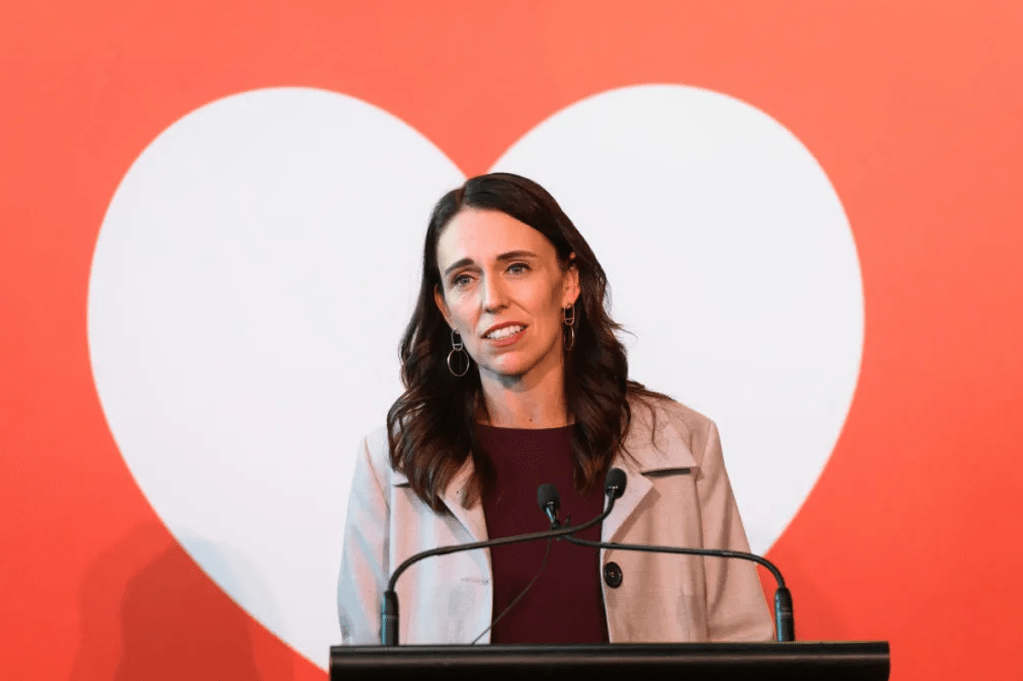Wellington, New Zealand
Jacinda Ardern has announced she will be stepping down as the prime minister of New Zealand, saying it would be “doing a disservice” to continue in the position she has held here over the past five years. Ardern said she will leave office on February 7. The forty-two-year-old premier will not seek re-election.
“I know when I have enough left in the tank to do it justice,” she said during a hastily arranged press conference during what ought to have been an unremarkable start-of-the-year political retreat with colleagues in the city of Napier.
Napier, the setting of the country’s worst-ever earthquake nearly a century ago, now becomes the scene of another monumental heaving of the Earth’s crust — if not for rank-and-file Kiwis, who in significant numbers have been tiring of the Ardern touch, then certainly for her beloved Labour Party as it lurches through the remainder of its annual caucus getaway.
Her fellow Members of Parliament will have to scramble over the coming days to find a successor with even a portion of the outgoing leader’s talent for adroit stagecraft and easy-going appeal. Most of them must also be steeling themselves for an electoral loss that was increasingly possible at this year’s general election in October but which now seems rather more firmly on the cards.
How different it all looked in the South Seas just twelve months ago. Ardern appeared all but sure of comfortably nabbing a third three-year parliamentary term for Labour. Gone were the memories of her party languishing in opposition for the better part of a decade before she propelled it on a winning path in 2017.
Ardern’s initial electoral success owed as much to the mathematical vagaries of the country’s oddball electoral model as it did to the new leader’s energetic campaigning. Still, there was no doubting the popular mandate she secured at the next election.
In 2020, on the back of what was widely seen to be her masterful handling of the pandemic, Labour positively roared back into office, not only handily trouncing its conservative National Party rivals but mustering an outright majority of votes. It was an unheard-of achievement under New Zealand’s mixed-member proportional representation system, which typically requires fiddly coalition deals to be stitched together between the party with the most votes and smaller parties.
That last victory had to do with the widespread perception that Ardern had somehow achieved the near-impossible in permanently putting paid to the Covid threat.
She did this by shutting the country off from the outside world, eventually for the better part of two years, while signing off on a succession of eye-watering government policies to ensure her self-described “team of five million” could remain cooped up in their houses.
In this, along with much else, Ardern’s perceived accomplishments were ultimately as much performative as actual, all the more so after Omicron gatecrashed the premature celebrations in late 2021.
Even after it became clear the jig was up, Ardern’s government persisted with its Antipodean version of zero Covid, shuttering much business activity — especially in the commercial heartland of Auckland — while offering little succor to the million New Zealanders who remained stranded abroad, unable to return home.
Thus began the fraying of the doe-eyed premier’s reputation for “compassionate” management and natural empathy, honed in, for instance, her empathetic response to the massacre of fifty-one innocents in the southern city of Christchurch in 2019 by an anti-Muslim fanatic. The same style won plaudits later that same year as she mingled with survivors of a deadly volcanic eruption on White Island.
In recent months, however, the tank has been running noticeably low. By pretty much any economic measure today, save the country’s historically low unemployment rate, New Zealand is in worse shape than it was five years ago.
A sustained property boom, in which housing became largely unaffordable for first-time buyers, has given way to a widespread property bust, in which many homeowners now find themselves in negative equity and unable to sell. During the bust, as with the boom, the perception has been of a government nonplussed and unable to move much beyond the old script of “kindness” and fuzzy promises of a brighter day yet to come.
In the meantime, national debt levels are high. A deep recession beckons. And many of the country’s now uncharacteristically shabby major cities are currently roiled by an unprecedented crime wave, particularly in the retail sector where vehicular ram-raids and violence against storekeepers have become depressingly commonplace.
Rumbling in the recent background has been a series of dismal political polls indicating likely electoral victory for the conservative National Party in 2023.
The New Zealand Labour Party now has just three days to find a suitable replacement for Ardern as she bids farewell to “the most fulfilling five and a half years of my life.” Or indeed any replacement at all. The outgoing leader’s most obvious successor, Grant Robertson, a roly-poly character with some popular appeal, has ruled himself out of the running.
Whoever’s lucky enough — or unlucky enough as the case may be — to make the final cut, he or she will be a virtual unknown abroad and not terribly more prominent within New Zealand. Talk about an empty tank.
This article was originally published on The Spectator’s UK website.





















